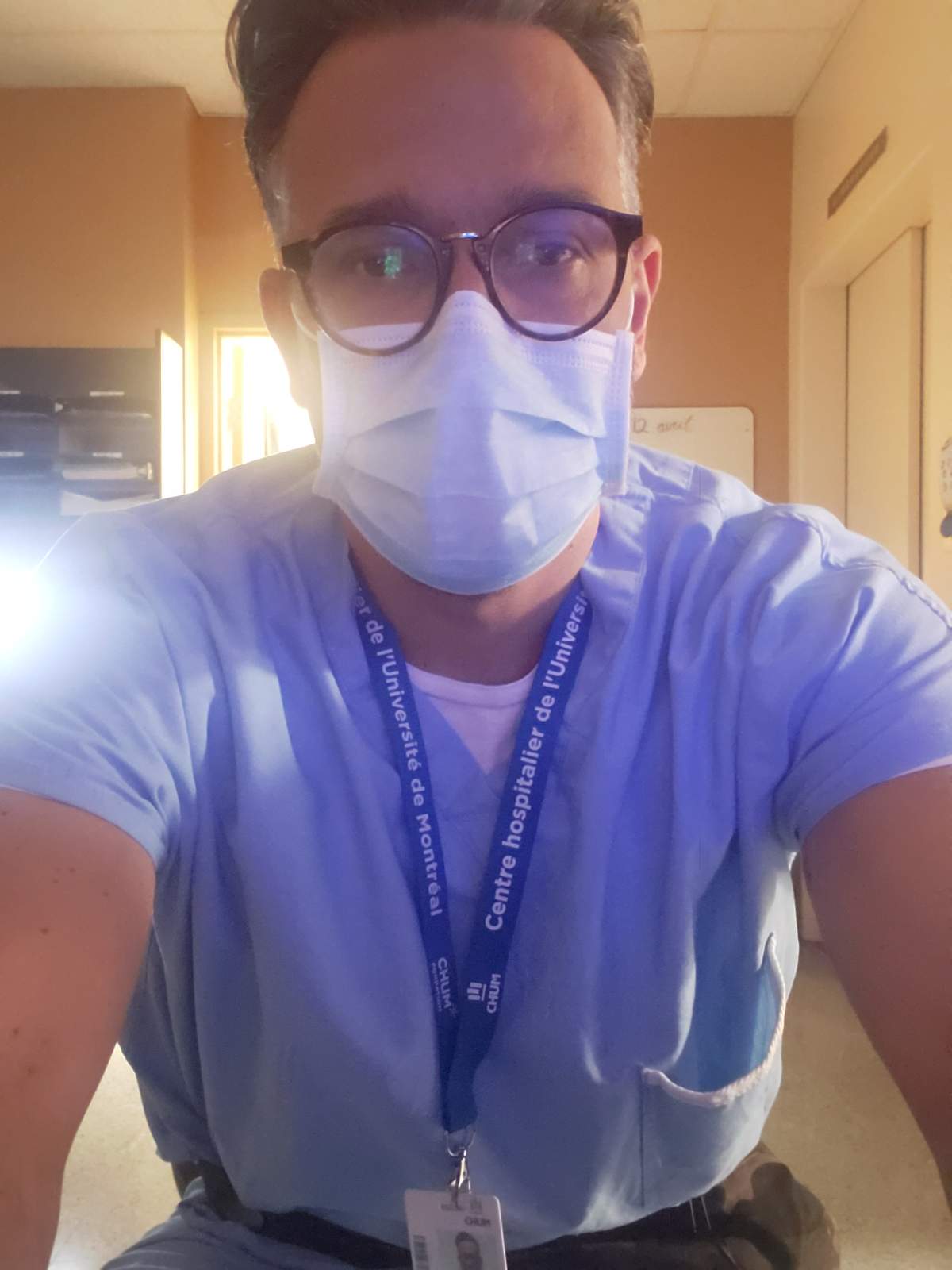Nurses currently working on the front lines of the COVID-19 crisis are raising serious concerns about shortages of staff, testing and protective gear.

Quebec’s premier is now calling on health-care workers to avoid travelling from one facility to another. But some nurses insist they have no choice.
“We’re all doing double shifts, we’re all doing eight in a row,” said Joanne Scullion, a licensed practical nurse at St-Mary’s hospital.
Scullion is part of a team of workers recently sent to Residence Herron on Dorval, when her regional health agency, the West Island CIUSSS, stepped in and placed the long-term care facility (CHSLD) under trusteeship.
Three investigations are currently underway after 31 residents died in one month.
“We’re all getting tired and we’re picking up shifts at the CHSLDs because the call has gone out,” said Scullion, who worries about health-care workers burning out.
“People will finish a day shift and they’ll go and do an evening or they’ll finish an evening and will go and do a night.”
Another nurse working for the CHUM worries a lack of protective equipment and slow COVID-19 testing may be contributing to the current staff shortage.

Get weekly health news
Oren Sebag, also a city councillor in Cote St-Luc, signed up to work at the Hotel Dieu hospital one week ago, as he had done during the H1N1 pandemic 11 years ago. He spent a week working the night shift before being sent home Wednesday night, told that he came into contact with a nurse who tested positive.
The father of three is now in isolation, and desperate to get tested.
“They asked me to leave the unit right away. I did ask if I was going to be tested — they had no answer for me,” said Sebag, adding a shortage of masks meant staff at the nursing station wearing not them when he was working on the overnight shift.
“We’ve got to test every single health-care worker out there because that nurse that exposed me went back to the metro, went back on the bus, went back to her family and took care of patients that were not COVID-positive.
During the government’s daily update on Thursday, Quebec’s health minister said testing is a priority but that patients and residents in long-term care facilities will get access first.
As for nurses working in multiple facilities, the premier asked them to put a temporary stop to that practice.
“We’ve asked all the people that were able to stop it to stop it for weeks,” said Francois Legault, while admiting it’s not always an option.
“Of course, when we’re short of staff, sometimes it’s impossible.”
Scullion blames the current shortage on low wages. She considers it insulting that doctors and medical specialists are now hired to help, at a much higher rate. She worries it will cost a fortune, and claims the nursing shortage has been known for years.
“Legault has no idea technically what we do,” said Scullion. “It’s like closing the barn door after the horse has bolted.
“Make the profession more palatable. Make it more attractive.”
Sebag has another 11 days of isolation left and believes there would be more nurses on the job if they had access to rapid testing.
“I told the head nurse yesterday if she texts me tomorrow morning and it’s negative, I’m back there this weekend,” said the father of three, who feels fortunate to have access to a friend’s apartment to avoid possibly contaminating his family.
“To me, that is essential — to figure out If you’re a carrier or not and how you’re going to potentially put peoples lives in danger.”












Comments
Want to discuss? Please read our Commenting Policy first.